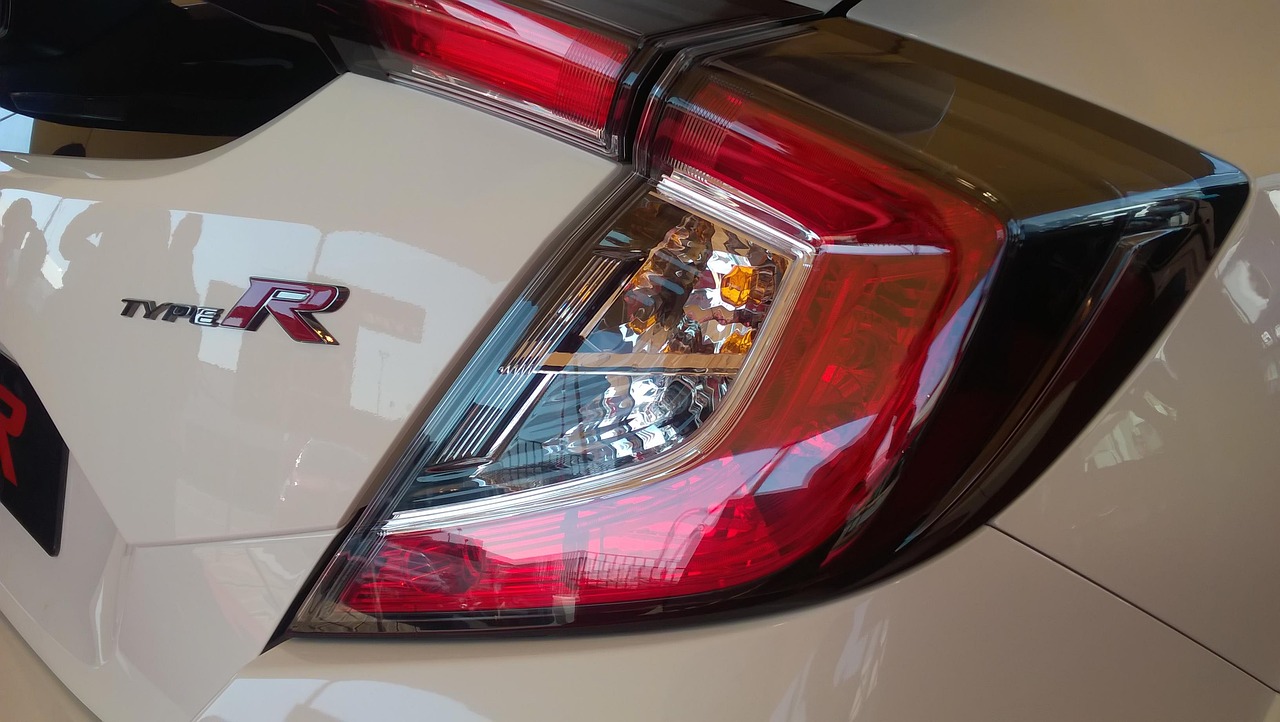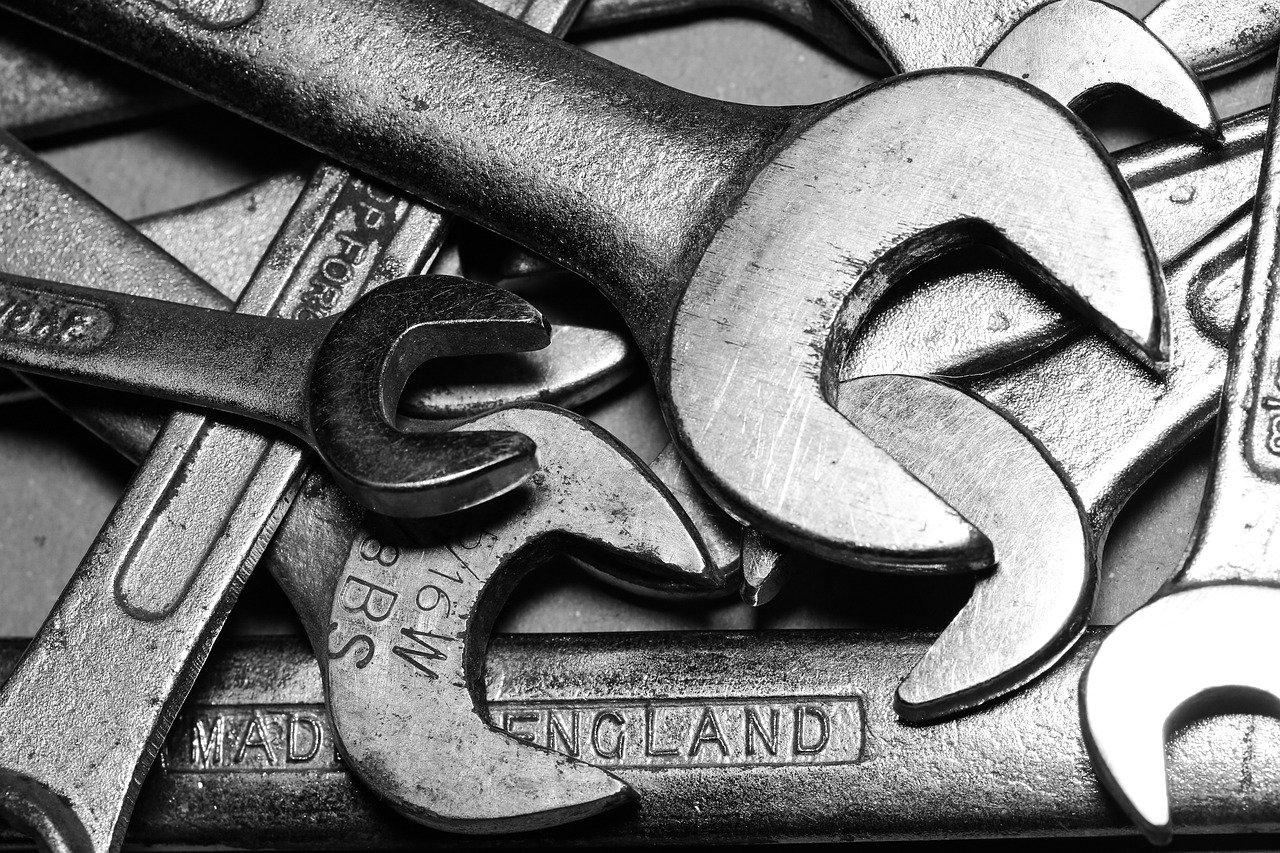This article delves into the impressive longevity of the Honda Accord. The Accord is renowned for its durability, making it a popular choice for many drivers. In this exploration, we will discuss the factors that influence its lifespan, provide essential maintenance tips, and share real-world examples that highlight its reliability. Understanding these elements can help potential owners appreciate the value of this vehicle.
What is the Average Lifespan of a Honda Accord?
The average lifespan of a Honda Accord can exceed 200,000 miles with proper care and attention. Many owners report their vehicles lasting well beyond this threshold, with some even reaching 300,000 miles. This impressive longevity is a testament to Honda’s engineering and quality.
Factors Influencing the Longevity of a Honda Accord
- Driving Habits: Gentle driving, regular trips, and avoiding harsh conditions can significantly extend the life of the Accord.
- Maintenance Routines: Consistent maintenance practices, such as oil changes and tire rotations, are crucial for enhancing durability.
- Environmental Conditions: Factors like climate and road conditions can affect wear and tear on the vehicle.
Importance of Regular Maintenance
Routine maintenance is essential for keeping a Honda Accord running smoothly. Regular oil changes, tire rotations, and brake inspections can prevent major issues and ensure the vehicle remains reliable for years to come.
Common Issues Affecting Honda Accord Lifespan
Despite its reputation for reliability, certain issues can arise over time. Understanding common problems, such as transmission issues or brake wear, allows owners to prepare and mitigate potential damage.
Maintenance Tips for Extending Honda Accord Life
- Regular Oil Changes: Changing the oil at recommended intervals is vital for engine health, preventing wear and extending the vehicle’s life.
- Keeping Up with Fluid Levels: Regularly checking and maintaining fluid levels, including coolant and transmission fluid, is essential for smooth operation.
- Routine Inspections: Conducting periodic inspections can help identify potential issues before they escalate into major repairs.
Real-World Examples of Honda Accord Longevity
Many Honda Accord owners report achieving high mileage milestones. For instance, there are numerous documented cases of Accords surpassing 300,000 miles. These stories often emphasize the significance of diligent maintenance and care.
Owner Testimonials and Experiences
Hearing from actual owners provides valuable insights into the Accord’s longevity. Their experiences can guide prospective buyers in understanding what to expect from their vehicle. Many owners express satisfaction with their Accords, citing minimal issues and excellent performance even after years of use.
Is the Honda Accord Worth the Investment?
Given its reputation for longevity and reliability, many potential buyers wonder if investing in a Honda Accord is worthwhile. Evaluating the cost against the potential lifespan reveals that the Accord often provides excellent value, making it a smart investment for those seeking a dependable vehicle.

What is the Average Lifespan of a Honda Accord?
The Honda Accord is renowned for its reliability and durability, making it one of the most popular vehicles in its class. Understanding the average lifespan of a Honda Accord is crucial for prospective buyers and current owners alike. With proper care and maintenance, many Honda Accords can achieve an impressive lifespan, often exceeding 200,000 miles. This article delves into the factors that influence this longevity, helping you make informed decisions about your vehicle.
The average lifespan of a Honda Accord can vary significantly based on several factors. While some owners report their vehicles lasting well over 300,000 miles, others may experience a shorter lifespan due to various circumstances. It is essential to recognize that the typical mileage can serve as a guideline for potential buyers, allowing them to assess the value and reliability of a pre-owned vehicle.
Several key factors contribute to how long a Honda Accord can last:
- Driving Habits: Gentle driving, avoiding rapid acceleration and hard braking, can significantly extend the life of your vehicle.
- Maintenance Routines: Regular maintenance, such as oil changes and tire rotations, plays a critical role in preventing wear and tear.
- Environmental Conditions: Vehicles exposed to harsh weather conditions or rough road surfaces may experience accelerated wear.
Your driving style can greatly affect the lifespan of your Honda Accord. Gentle driving practices, such as smooth acceleration and deceleration, can minimize stress on the engine and transmission, leading to a longer-lasting vehicle. Additionally, avoiding frequent short trips can prevent the engine from reaching optimal operating temperature, which is essential for maintaining engine health.
Routine maintenance is vital for ensuring the longevity of your Honda Accord. Regular oil changes, typically every 5,000 to 7,500 miles, help keep the engine lubricated and functioning smoothly. Additionally, scheduling tire rotations and brake inspections can prevent more significant issues down the line, ensuring your vehicle remains reliable for years to come.
The environment in which you drive also plays a significant role in the lifespan of your Honda Accord. For instance, vehicles driven in areas with extreme temperatures or heavy rainfall may experience more wear and tear. Corrosive elements like road salt in winter can lead to rust and other damage, emphasizing the need for regular inspections and maintenance.
Despite its reputation for reliability, certain issues can arise as the vehicle ages. Common problems include:
- Transmission issues
- Electrical system failures
- Suspension wear
Being aware of these potential problems can help owners take preventive measures and address issues before they escalate.
To maximize the lifespan of your Honda Accord, consider the following maintenance tips:
- Regular Oil Changes: Stick to the recommended intervals to keep your engine in top shape.
- Fluid Level Checks: Ensure that all fluids, including coolant and transmission fluid, are at optimal levels.
- Brake Inspections: Regularly check your brakes to ensure they are functioning correctly and replace them as needed.
Many Honda Accord owners have reported their vehicles exceeding 300,000 miles. These high-mileage examples often highlight the importance of diligent maintenance and care. Owner testimonials provide valuable insights into what it takes to achieve such impressive mileage, often emphasizing the need for regular service and careful driving.
Given its reputation for longevity and reliability, investing in a Honda Accord can be a wise decision. Evaluating the costs against potential lifespan can help you determine if this vehicle is the right choice for you. With proper care, a Honda Accord can serve you well for many years, making it a worthwhile investment.

Factors Influencing the Longevity of a Honda Accord
The longevity of a Honda Accord is a topic of great interest among car enthusiasts and potential buyers alike. Understanding the factors that influence the lifespan of this popular vehicle can help owners maximize its durability and performance. In this section, we will delve into the various elements that contribute to the longevity of a Honda Accord, providing insights that can guide both current and prospective owners.
Your driving habits play a crucial role in determining how long your Honda Accord will last. Gentle driving, which includes avoiding rapid acceleration and harsh braking, can significantly extend the life of your vehicle. Regular trips, rather than short spurts, allow the engine to reach its optimal operating temperature, thereby reducing wear and tear. Additionally, being mindful of road conditions and avoiding potholes can prevent unnecessary damage to the suspension and tires.
Regular maintenance is vital for keeping your Honda Accord in top shape. Simple tasks such as oil changes at recommended intervals, tire rotations, and brake inspections can prevent major issues down the line. For instance, neglecting oil changes can lead to engine sludge buildup, which can be detrimental to engine performance. Following the manufacturer’s maintenance schedule is essential for ensuring that your vehicle remains reliable for years to come.
The environment in which you drive can also affect the lifespan of your Honda Accord. Factors such as climate, road conditions, and exposure to harsh elements can influence wear and tear. For example, vehicles that are frequently exposed to extreme temperatures or corrosive substances like road salt may experience faster degradation. Parking in a garage or using a car cover can help protect your vehicle from environmental damage.
Despite its reputation for reliability, certain issues can arise over time that may impact the lifespan of a Honda Accord. Transmission problems, for instance, are a common concern among older models. Regularly checking fluid levels and addressing any warning signs promptly can help mitigate these issues. Understanding the common problems associated with your vehicle allows you to take proactive measures to prevent them from escalating.
Implementing a proactive maintenance schedule can significantly enhance the lifespan of your Honda Accord. Here are essential tips that every owner should consider:
- Regular Oil Changes: Changing the oil at recommended intervals is vital for engine health. This simple task can prevent engine wear and extend the vehicle’s overall life.
- Keeping Up with Fluid Levels: Maintaining proper fluid levels, including coolant and transmission fluid, is essential. Regular checks can prevent overheating and ensure smooth operation of the vehicle.
- Inspecting Tires: Regularly checking tire pressure and tread depth can help avoid blowouts and improve fuel efficiency.
Many Honda Accord owners report high mileage achievements, with numerous documented cases of vehicles surpassing 300,000 miles. These stories often highlight the importance of diligent maintenance and care. Hearing from actual owners offers valuable perspectives on the Accord’s longevity, guiding prospective buyers in understanding what to expect from their vehicle.
Considering its reputation for longevity and reliability, many wonder if investing in a Honda Accord is worthwhile. Evaluating costs against potential lifespan can help in making this decision. With proper care and attention to the factors mentioned above, a Honda Accord can serve as a dependable vehicle for many years, making it a sound investment for both current and future owners.
Driving Habits and Their Impact
Driving habits play a crucial role in determining the lifespan of a vehicle, particularly for the Honda Accord. Understanding how gentle driving practices can enhance longevity is essential for any owner looking to maximize their investment.
Driving your Honda Accord with care can significantly reduce wear and tear on the vehicle. Gentle acceleration and deceleration help maintain the integrity of the engine and transmission. Sudden stops and starts can cause unnecessary strain, leading to premature wear.
Regular trips, especially short ones, may seem harmless, but they can actually be detrimental if not managed properly. Frequent short drives do not allow the engine to reach its optimal operating temperature, which can lead to increased engine deposits and reduced fuel efficiency. Instead, aim for a mix of short and longer journeys to keep the engine healthy.
Harsh driving conditions, such as extreme temperatures, rough terrains, or heavy traffic, can take a toll on your Honda Accord. Extreme heat can lead to overheating, while cold weather can affect battery performance and fluid viscosity. Whenever possible, try to avoid these conditions or prepare your vehicle accordingly.
- Use Technology: Many modern vehicles, including the Honda Accord, come equipped with driving assistance features that can help monitor your driving style. Utilizing these features can provide insights into your habits.
- Keep a Log: Maintaining a driving log can help you identify patterns in your driving behavior that may need adjustment.
- Seek Feedback: Ask a trusted friend or family member to ride along and provide constructive feedback on your driving habits.
Implementing better driving habits not only extends the lifespan of your Honda Accord but also enhances overall safety and fuel efficiency. A well-maintained vehicle is less likely to experience major mechanical failures, which can save you money in the long run.
In summary, the way you drive has a profound impact on the longevity of your Honda Accord. By adopting gentle driving techniques, ensuring regular trips, and avoiding harsh conditions, you can significantly enhance your vehicle’s durability. These practices not only prolong the life of your car but also contribute to a safer and more enjoyable driving experience.
Importance of Regular Maintenance
When it comes to ensuring the longevity and reliability of your vehicle, regular maintenance is of utmost importance. For the Honda Accord, a well-known and trusted model, adhering to a consistent maintenance schedule can significantly enhance its lifespan. This article delves into the and how it can keep your Honda Accord running smoothly for years to come.
Routine maintenance tasks such as oil changes, tire rotations, and brake inspections are not just mere suggestions; they are essential practices that can prevent major mechanical failures. Neglecting these tasks can lead to costly repairs and a decrease in the vehicle’s overall performance.
- Oil Changes: Regular oil changes are critical for maintaining engine health. They help remove dirt and debris, ensuring that your engine runs smoothly.
- Tire Rotations: Rotating your tires every 5,000 to 7,500 miles can promote even tire wear and extend their lifespan.
- Brake Checks: Regular inspections of your brakes can prevent unsafe driving conditions and costly repairs down the road.
Maintaining your Honda Accord through regular check-ups ensures that all components are functioning optimally. For instance, flushing the coolant system can prevent overheating, while replacing air filters can improve fuel efficiency. These small yet significant actions contribute to a smoother driving experience and can enhance overall performance.
Failing to keep up with routine maintenance can lead to a multitude of issues. For example, neglecting oil changes can result in engine wear and even complete engine failure over time. Similarly, ignoring tire rotations can lead to uneven wear, affecting handling and safety. In essence, what may seem like a minor oversight can snowball into major problems, costing you more in the long run.
Many Honda Accord owners have reported that adhering to a strict maintenance schedule has allowed their vehicles to reach impressive mileages. For example, some owners have successfully driven their Accords beyond 300,000 miles with diligent care. These testimonials highlight the direct correlation between regular maintenance and vehicle longevity.
To ensure that you never miss a maintenance appointment, consider the following tips:
- Create a Maintenance Schedule: Mark your calendar for oil changes, tire rotations, and other essential services.
- Use Reminders: Set alerts on your phone or use maintenance tracking apps to keep track of service dates.
- Consult the Owner’s Manual: Your Honda Accord’s manual contains vital information on recommended maintenance schedules.
In conclusion, the importance of regular maintenance for your Honda Accord cannot be overstated. By investing time and effort into routine care, you not only enhance the longevity of your vehicle but also ensure a safe and enjoyable driving experience. Remember, a little maintenance goes a long way in keeping your Honda Accord running efficiently for years to come.
Environmental Factors to Consider
The longevity of a vehicle, particularly the Honda Accord, is influenced by a myriad of factors, with environmental conditions playing a crucial role. Understanding these factors can equip owners with the knowledge they need to protect their investment and maximize the lifespan of their vehicle.
Climate is a significant factor in vehicle wear and tear. Extreme temperatures, whether hot or cold, can impact various components of your Honda Accord. For instance, in hot climates, the engine and transmission may face increased stress, leading to potential overheating issues. Conversely, in colder regions, battery performance can degrade, and fluids may thicken, affecting overall vehicle performance.
Road conditions are another critical aspect that influences the lifespan of your Honda Accord. Potholes, gravel roads, and poorly maintained surfaces can lead to premature wear on tires, suspension, and alignment. Regularly driving on rough terrain can exacerbate these issues, leading to costly repairs over time. Therefore, being mindful of the roads you frequently travel can significantly affect your vehicle’s durability.
Exposure to the elements, such as rain, snow, and UV rays, can also have detrimental effects on your Honda Accord. Prolonged exposure to moisture can lead to rust and corrosion, particularly in areas like the undercarriage and wheel wells. Similarly, UV rays can fade paint and damage interior materials, reducing the aesthetic appeal and resale value of your vehicle.
- Regular Washing: Keeping your vehicle clean helps remove dirt and road salt that can cause corrosion.
- Waxing: Applying a protective wax layer can shield the paint from UV damage.
- Using a Garage: Parking in a garage or using a car cover can protect your vehicle from harsh weather conditions.
- Routine Inspections: Regularly check for signs of rust or wear, especially after harsh weather.
Implementing a robust maintenance routine can help mitigate the effects of environmental factors. Here are some essential practices:
1. **Regular Oil Changes**: Ensures engine components remain lubricated and functional.2. **Tire Maintenance**: Regularly check tire pressure and tread to ensure optimal performance.3. **Brake Checks**: Inspect brakes frequently, especially if driving in wet or icy conditions.4. **Fluid Levels**: Keep an eye on coolant, transmission, and brake fluids to prevent overheating and ensure smooth operation.
Yes, different regions present unique challenges for vehicle maintenance. For example:
- Coastal Areas: Saltwater exposure can accelerate rusting, necessitating more frequent washes and inspections.
- Mountainous Regions: Steep inclines and declines can strain brakes and transmissions, making regular checks essential.
- Urban Areas: Stop-and-go traffic can lead to increased wear on brakes and engines, highlighting the need for regular maintenance.
In conclusion, being aware of the environmental factors that affect your Honda Accord is vital for extending its lifespan. By taking proactive measures to protect your vehicle from climate extremes, poor road conditions, and environmental exposure, you can ensure that your Honda Accord remains reliable and durable for years to come.
Common Issues Affecting Honda Accord Lifespan
The Honda Accord is renowned for its durability and reliability, making it a popular choice among car enthusiasts. However, like any vehicle, it is not immune to certain problems that may arise over time. Understanding these common issues can help owners be proactive in their maintenance and care, ultimately extending the life of their vehicle.
Despite its reputation, the Honda Accord can experience a variety of issues as it ages. Below are some of the most frequently reported problems:
- Transmission Problems: Some Honda Accord models have been reported to experience transmission issues, particularly in earlier generations. Symptoms may include slipping gears or delayed shifting. Regular transmission fluid changes can help mitigate these issues.
- Engine Oil Leaks: Over time, engine gaskets and seals may wear out, leading to oil leaks. Regular inspections and timely repairs can prevent more severe engine damage.
- Brake Wear: As with any vehicle, brake components will wear out over time. Listening for unusual noises when braking and regularly checking brake pads can help ensure safety and longevity.
- Suspension Issues: The suspension system may also suffer from wear and tear, especially in vehicles exposed to rough road conditions. Symptoms include a bumpy ride or uneven tire wear. Regular checks can help maintain ride quality.
- Electrical Problems: Some owners report issues with electrical components, such as the battery or alternator. Keeping an eye on warning lights and addressing electrical concerns promptly can prevent larger problems.
Being aware of potential issues is the first step toward effective vehicle management. Here are some strategies to help owners prepare:
- Regular Maintenance: Adhering to a strict maintenance schedule is essential. This includes oil changes, tire rotations, and brake inspections.
- Diagnostic Checks: Utilizing diagnostic tools to monitor vehicle health can help catch problems early before they escalate.
- Owner Forums: Engaging with other Honda Accord owners through online forums can provide valuable insights and tips on common issues and solutions.
Understanding the common issues that can affect the Honda Accord is crucial for several reasons:
- Cost Savings: Early detection of problems can save owners significant repair costs in the long run.
- Enhanced Safety: Addressing issues promptly ensures that the vehicle remains safe to drive, reducing the risk of accidents.
- Informed Decision-Making: Knowledge of potential problems aids in making informed decisions regarding repairs and maintenance.
In summary, while the Honda Accord is a reliable vehicle, it is essential for owners to be aware of the common issues that may arise over time. By staying informed and proactive in maintenance, owners can significantly enhance the longevity and performance of their vehicles.

Maintenance Tips for Extending Honda Accord Life
Implementing a proactive maintenance schedule can significantly enhance the lifespan of a Honda Accord. Here are essential tips that every owner should consider:
- Regular Oil Changes: Changing the oil at recommended intervals is vital for engine health. This simple task can prevent engine wear and extend the vehicle’s overall life. Use high-quality oil and filters to ensure optimal performance.
- Keeping Up with Fluid Levels: Maintaining proper fluid levels, including coolant, brake fluid, and transmission fluid, is essential. Regular checks can prevent overheating and ensure smooth operation of the vehicle. Make it a habit to inspect these fluids monthly.
- Routine Tire Maintenance: Regularly check tire pressure and tread depth. Properly inflated tires improve fuel efficiency and handling. Rotate tires every 5,000 to 7,500 miles to promote even wear and extend their lifespan.
- Brake System Checks: The braking system is crucial for safety. Have your brakes inspected regularly and replace pads and rotors as needed. Listen for unusual noises when braking, as they can indicate wear.
- Battery Maintenance: Check the battery terminals for corrosion and ensure a secure connection. Replace the battery every 3-5 years, or sooner if you notice signs of weakness, such as slow engine cranking.
- Air Filter Replacement: A clean air filter can improve engine performance and fuel efficiency. Replace the air filter every 15,000 to 30,000 miles, or as recommended in the owner’s manual.
- Regular Inspections: Schedule comprehensive inspections with a trusted mechanic. These checks can identify potential issues before they escalate, saving you time and money in the long run.
- Wash and Wax: Regularly washing and waxing your Honda Accord protects the paint and body from corrosion and environmental damage. This not only maintains the vehicle’s appearance but also contributes to its longevity.
- Driving Habits: Adopt gentle driving habits. Avoid rapid acceleration and hard braking whenever possible. Smooth driving reduces wear on the engine and transmission, contributing to a longer lifespan.
By adhering to these maintenance tips, Honda Accord owners can ensure their vehicles remain reliable and efficient for many years. A proactive approach not only enhances the vehicle’s performance but also provides peace of mind, knowing that you are taking the necessary steps to protect your investment.
Incorporating these practices into your routine can lead to significant long-term benefits. Remember, the key to a long-lasting Honda Accord lies in consistent care and attention to detail.
Regular Oil Changes
When it comes to maintaining the health of your engine, are one of the most crucial tasks you can perform. Not only does this simple maintenance practice help to keep your engine running smoothly, but it also plays a significant role in extending the lifespan of your vehicle.
Oil serves as the lifeblood of your engine, providing lubrication to its moving parts. Over time, oil can degrade due to heat and contamination, leading to reduced effectiveness. Changing the oil at recommended intervals ensures that your engine remains well-lubricated, minimizing friction and wear.
- Most manufacturers recommend changing your oil every 5,000 to 7,500 miles, but this can vary based on driving habits and oil type.
- If you frequently drive in severe conditions, such as extreme temperatures or stop-and-go traffic, consider changing your oil more frequently.
- Always refer to your vehicle’s owner manual for specific guidelines.
Regular oil changes offer numerous benefits, including:
- Enhanced Engine Performance: Clean oil helps to ensure that your engine operates efficiently, leading to better fuel economy and performance.
- Prevention of Engine Wear: Fresh oil reduces friction, which can prevent premature wear and damage to engine components.
- Improved Engine Lifespan: By adhering to a regular oil change schedule, you can significantly extend the overall life of your vehicle.
Failing to change your oil regularly can lead to serious consequences:
- Engine Sludge: Old oil can turn into sludge, which clogs engine passages and can lead to overheating.
- Increased Repair Costs: Neglecting oil changes can result in significant engine damage, leading to costly repairs or even engine replacement.
- Decreased Resale Value: A well-maintained vehicle is more appealing to buyers. Regular oil changes can help maintain your vehicle’s value.
Not all oils are created equal. Selecting the right type of oil for your Honda Accord is essential. Consider the following:
- Viscosity Rating: Choose oil with the appropriate viscosity rating as specified in your owner’s manual.
- Synthetic vs. Conventional: Synthetic oils generally offer better protection and performance, especially in extreme conditions.
- API Certification: Look for oils that meet the American Petroleum Institute (API) certification for quality.
While changing your oil can be a straightforward task, you may choose between doing it yourself or opting for professional services. Here are some considerations:
- Cost: DIY oil changes can save you money, but professional services often come with added benefits, such as inspections of other vehicle components.
- Convenience: For those with busy schedules, professional services can save time and ensure the job is done correctly.
In conclusion, regular oil changes are vital for maintaining your Honda Accord’s engine health and longevity. By adhering to a consistent oil change schedule, you can ensure that your vehicle performs optimally and stands the test of time.
Keeping Up with Fluid Levels
Maintaining a vehicle’s performance is crucial for safety and longevity, and one of the most critical aspects of this maintenance is . This includes not only engine oil but also essential fluids like coolant and transmission fluid. Regularly checking and maintaining these fluids can significantly impact a vehicle’s overall health.
Fluid levels play a vital role in the operation of your vehicle. Engine oil lubricates moving parts, reducing friction and preventing wear. Coolant helps regulate engine temperature, preventing overheating, while transmission fluid ensures smooth gear shifts and protects the transmission from damage. Neglecting these fluids can lead to severe consequences.
It’s recommended to check fluid levels at least once a month or before long trips. This simple routine can help catch potential issues before they escalate. Here’s a quick checklist:
- Engine oil: Check for proper levels and color.
- Coolant: Ensure the reservoir is filled to the appropriate level.
- Transmission fluid: Check for color and consistency.
Being aware of the signs of low fluid levels can save you from costly repairs. Look out for:
- Overheating: If your engine temperature gauge rises, it may indicate low coolant levels.
- Slipping Transmission: Difficulty in shifting gears can signal low transmission fluid.
- Unusual Noises: If you hear grinding or whining sounds, it may be time to check your engine oil.
Maintaining proper fluid levels is straightforward but requires consistency. Here are some practical tips:
- Regular Inspections: Make it a habit to check your fluids monthly.
- Top Off Fluids: If levels are low, top them off with the recommended fluid type.
- Seek Professional Help: If you notice frequent fluid loss, consult a mechanic to identify leaks.
Proper fluid maintenance leads to numerous benefits:
- Improved Engine Performance: Adequate lubrication and cooling enhance efficiency.
- Extended Vehicle Lifespan: Regular fluid checks can prevent major breakdowns.
- Cost Savings: Preventative maintenance is often less expensive than repairs.
In conclusion, keeping up with fluid levels is a fundamental aspect of vehicle maintenance that should not be overlooked. Regular checks can prevent overheating and ensure smooth operation of the vehicle, ultimately enhancing its longevity and reliability. By adopting a proactive approach to fluid maintenance, vehicle owners can enjoy a safer and more efficient driving experience.

Real-World Examples of Honda Accord Longevity
The Honda Accord has earned a reputation for its durability and longevity, making it a popular choice among car enthusiasts and everyday drivers alike. This section delves into real-world examples that showcase the impressive lifespan of the Honda Accord, providing potential buyers with a clearer picture of what to expect from this reliable vehicle.
Many Honda Accord owners report high mileage achievements, with numerous vehicles reaching remarkable milestones. By examining these real-world examples, potential buyers can gain valuable insights and set realistic expectations regarding the longevity of the Accord.
- 300,000 Miles and Beyond: There are numerous documented cases of Honda Accords surpassing 300,000 miles. These vehicles often belong to owners who have diligently maintained their cars, adhering to recommended service intervals and addressing minor issues before they escalate.
- Owner Testimonials: Many owners proudly share their experiences on forums and social media, highlighting their Accords that have crossed the 200,000-mile mark. These stories often emphasize the importance of regular maintenance and care, reinforcing the idea that a Honda Accord can be a long-term investment.
- Real-Life Examples: For instance, one owner from California reported that their 2005 Honda Accord reached 350,000 miles before needing a major engine overhaul. This owner attributed the longevity to consistent oil changes and careful driving habits.
Several factors contribute to the high mileage achievements reported by Honda Accord owners:
- Regular Maintenance: Routine maintenance, including oil changes, tire rotations, and brake inspections, plays a crucial role in extending the life of the vehicle. Owners who prioritize these tasks often see better results in terms of longevity.
- Driving Habits: Gentle driving, avoiding harsh accelerations, and not overloading the vehicle can significantly impact its lifespan. Drivers who treat their vehicles with care tend to achieve higher mileage.
- Environmental Conditions: The environment in which the vehicle is driven also matters. Cars that are primarily driven in mild climates and on well-maintained roads typically experience less wear and tear.
Hearing from actual owners offers valuable perspectives on the Accord’s longevity. Their experiences can guide prospective buyers in understanding what to expect from their vehicle:
- Community Feedback: Online forums dedicated to Honda enthusiasts are filled with testimonials from owners who have pushed their Accords to impressive mileages. Many share tips and tricks that helped them maintain their vehicles over the years.
- Personal Stories: For example, a user shared their journey with a 2008 Honda Accord, which they purchased with 120,000 miles on the odometer. After 10 years and an additional 200,000 miles, they reported minimal issues, primarily routine maintenance, and expressed satisfaction with their car’s performance.
These real-world examples not only highlight the potential longevity of the Honda Accord but also emphasize the importance of responsible ownership. By learning from the experiences of others, prospective buyers can make informed decisions and set realistic expectations for their own vehicles.
High-Mileage Honda Accords
The Honda Accord has long been celebrated for its reliability and durability, with many owners sharing their experiences of high mileage. One particularly impressive aspect of the Accord is the numerous documented cases of these vehicles surpassing 300,000 miles. Such milestones are not merely anecdotal; they serve as a testament to the vehicle’s engineering and the importance of diligent maintenance.
Many owners attribute the longevity of their Honda Accords to a combination of consistent care and preventive maintenance. Regular oil changes, timely brake replacements, and careful monitoring of fluid levels are just a few practices that can significantly extend the life of the vehicle. Furthermore, many high-mileage Accord owners emphasize the need for gentle driving habits. Avoiding aggressive acceleration and hard braking can reduce wear on critical components, contributing to a longer lifespan.
In addition to careful driving and maintenance, the environment plays a crucial role in determining how long a Honda Accord can last. Vehicles driven in harsh climates or on poorly maintained roads may experience accelerated wear and tear. Conversely, those maintained in milder conditions often report better performance and longevity. This highlights the importance of understanding the specific conditions under which a vehicle operates.
Another factor to consider is the model year and the advancements in technology. Newer Honda Accords often come equipped with improved engines and more efficient systems, which can lead to increased durability. For example, many owners of the 2010 and later models report achieving over 400,000 miles with proper maintenance. These advancements showcase Honda’s commitment to improving the reliability of their vehicles.
Real-world examples abound, with many forums and social media groups dedicated to sharing stories of high-mileage Honda Accords. For instance, one owner from California shared that their 2005 Honda Accord reached an impressive 350,000 miles before any major issues arose, attributing this success to a strict maintenance schedule and using high-quality parts during repairs. Another owner from Texas reported a similar experience with their 2008 model, which surpassed 300,000 miles without any significant mechanical failures.
These testimonials not only provide hope for prospective buyers but also illustrate the potential of the Honda Accord as a long-term investment. By adhering to a proactive maintenance routine and being mindful of driving habits, many owners have unlocked the full potential of their vehicles. This is particularly encouraging for individuals considering a Honda Accord as their next car, as it suggests that with the right care, they too can enjoy a vehicle that lasts well beyond the average lifespan.
In summary, the stories of high-mileage Honda Accords serve as powerful reminders of what is possible with diligent care and attention. Whether you are a current owner or contemplating purchasing a Honda Accord, understanding the factors that contribute to its longevity can help you make informed decisions and potentially achieve remarkable mileage milestones.
Owner Testimonials and Experiences
The Honda Accord has built a solid reputation for reliability and longevity, but nothing speaks to its durability quite like the experiences of actual owners. When prospective buyers hear firsthand accounts from those who have driven the Accord for years, they gain invaluable insights that can shape their purchasing decisions. In this section, we will explore various owner testimonials and experiences that highlight the Accord’s lifespan, maintenance, and overall satisfaction.
Many Honda Accord owners report that their vehicles have exceeded 200,000 miles with minimal issues. One owner from California shares, “My Accord has been with me for over a decade, and I’ve only had to replace the battery and tires. It’s incredible how dependable it has been.” Such testimonials reinforce the notion that with proper care, the Accord can be a long-term investment.
There are numerous stories of Honda Accords reaching impressive mileage milestones. For instance, a couple from Texas proudly recounts their experience with a 2008 model that recently crossed the 300,000-mile mark. They attribute this achievement to their strict adherence to the maintenance schedule, stating, “Regular oil changes and timely repairs made all the difference.” Such accounts serve as motivation for prospective buyers, illustrating the potential longevity of the vehicle.
While many owners are pleased with their Accords, some have faced challenges. A New York owner mentions, “After hitting 150,000 miles, I started experiencing some transmission issues. However, the dealership was very helpful, and I managed to get it fixed without breaking the bank.” This highlights the importance of being prepared for potential issues, even in a reliable vehicle. Understanding common problems can empower owners to take proactive measures.
Owner experiences consistently emphasize the role of regular maintenance in extending the life of the Honda Accord. One owner advises, “Don’t skip those routine check-ups! They save you money in the long run.” This sentiment is echoed by many who have learned that neglecting maintenance can lead to more significant issues down the road.
The Honda Accord community is vibrant, with many owners sharing their experiences online through forums and social media. This support network allows individuals to exchange tips and advice, fostering a sense of camaraderie. An owner from Florida notes, “I love being part of the Accord community. We share stories, and it helps me stay informed about best practices for maintaining my car.” This sense of belonging can enhance the ownership experience and encourage responsible vehicle care.
By listening to the stories of current Accord owners, prospective buyers can gain a realistic understanding of what to expect. Key takeaways include:
- Longevity is achievable with consistent maintenance.
- Real-world mileage achievements can inspire confidence in the vehicle.
- Challenges can arise, but being proactive can mitigate issues.
- Community support is invaluable for sharing experiences and advice.
In conclusion, owner testimonials provide a wealth of knowledge for prospective Honda Accord buyers. Learning from the experiences of others can help inform decisions and set realistic expectations regarding vehicle longevity and maintenance. The Accord’s reputation for reliability is not just a marketing claim; it is a reality backed by the voices of its owners.

Is the Honda Accord Worth the Investment?
When considering a vehicle that combines longevity and reliability, the Honda Accord often emerges as a top contender. Many potential buyers frequently ask themselves, “Is the Honda Accord worth the investment?” To answer this question, it is important to evaluate the costs associated with ownership against the potential lifespan of the vehicle.
The Honda Accord has a well-established reputation for durability. With proper care and maintenance, many owners report their Accords lasting over 200,000 miles, with some even reaching the impressive milestone of 300,000 miles. This longevity can translate into significant savings over time, as fewer repairs and replacements are necessary compared to less reliable vehicles.
When assessing the value of investing in a Honda Accord, it is essential to consider both the initial purchase price and the ongoing maintenance costs. Typically, Honda Accords are priced competitively in the midsize sedan market, making them accessible for many buyers. Additionally, their reputation for reliability often results in lower repair costs, which can further enhance their value proposition.
Another aspect to consider is the resale value of the Honda Accord. Vehicles known for their longevity tend to maintain their value better than others. This means that when it comes time to sell or trade in, an Accord can provide a better return on investment. This is particularly relevant for buyers who plan to keep their vehicles for several years.
To maximize the lifespan of a Honda Accord, it is crucial to implement a proactive maintenance schedule. Here are some essential practices:
- Regular Oil Changes: Changing the oil at recommended intervals is vital for engine health.
- Fluid Checks: Regularly maintaining fluid levels, including coolant and transmission fluid, ensures smooth operation.
- Tire Maintenance: Proper tire care, including rotations and alignments, can enhance safety and performance.
Many Honda Accord owners share positive experiences regarding their vehicles’ longevity. Owner testimonials often highlight how diligent maintenance has allowed their Accords to reach high mileage without significant issues. These real-world examples serve as powerful endorsements for potential buyers considering this investment.
In conclusion, when evaluating whether the Honda Accord is worth the investment, it is clear that its combination of reliability, longevity, and value retention makes it an attractive option for many buyers. By considering the costs associated with ownership alongside the vehicle’s potential lifespan, prospective owners can make an informed decision that aligns with their financial goals and personal needs.
Frequently Asked Questions
- How many miles can a Honda Accord last?
A Honda Accord can last over 200,000 miles with proper maintenance and care. Some owners even report their vehicles surpassing 300,000 miles!
- What maintenance is essential for a Honda Accord?
Regular oil changes, fluid level checks, and tire rotations are crucial. Keeping up with these tasks can significantly extend the life of your Accord.
- Do driving habits affect the lifespan of a Honda Accord?
Absolutely! Gentle driving, avoiding harsh conditions, and maintaining a steady speed can help prolong the vehicle’s life.
- What environmental factors should I consider?
Climate, road conditions, and exposure to the elements all play a role in wear and tear. Protecting your Accord from extreme conditions can help it last longer.
- Is it worth investing in a Honda Accord?
Considering its reputation for reliability and longevity, many find that the investment pays off over time, especially with proper maintenance.



